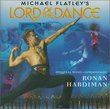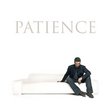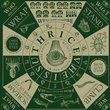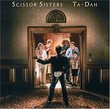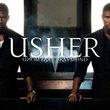| All Artists: James Newton Howard Title: Signs Members Wishing: 1 Total Copies: 0 Label: Hollywood Records Original Release Date: 8/2/2002 Re-Release Date: 7/30/2002 Album Type: Soundtrack Genres: Pop, Soundtracks Style: Number of Discs: 1 SwapaCD Credits: 1 UPCs: 720616236821, 094635975321, 094635975352, 5050466028129 |
Search - James Newton Howard :: Signs
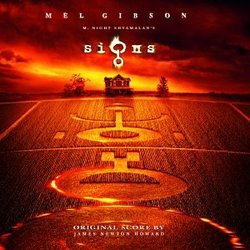 | James Newton Howard Signs Genres: Pop, Soundtracks
For decades strange, intricate symbols have appeared pressed into farm fields across the globe. Enormous, puzzling messages from an extraterrestrial civilization--or an incredibly elaborate hoax staged by... whom? Those ar... more » |
Larger Image |
CD DetailsSynopsis
Amazon.com For decades strange, intricate symbols have appeared pressed into farm fields across the globe. Enormous, puzzling messages from an extraterrestrial civilization--or an incredibly elaborate hoax staged by... whom? Those are the questions that drive M. Night Shyamalan's narrative, but as in the director's other thrillers (The Sixth Sense, Unbreakable), the answers aren't always where you expect them. As he's done for Shyamalan's previous films, composer James Newton Howard creates a musical undercurrent of mystery and unease, with nervous arpeggios and sullen, swelling strings ratcheting up throughout the score's unsettling first half. The film is dotted with apparent visual homages to past sci-fi films, and moments of Howard's orchestral score have occasional parallels with the more action-oriented passages of John Williams's landmark Close Encounters score. But there's more than brooding atmospherics, tension-building, and the occasional booming crescendo here. A sense of gentle spirituality gradually evolves as well (largely via the composer's sensitive use of minimalist techniques), with Howard's music ultimately achieving a quiet, satisfying sense of resolve that's missing from all too much of Hollywood's hollow dramatic thunder. --Jerry McCulley Similarly Requested CDs
|
CD ReviewsAll the Right "Signs" For Howard G M. Stathis | cedar city, utah USA | 08/07/2002 (4 out of 5 stars) "Upon first impression one may not be very impressed with James Newton Howard's score for M. Night Shymalan's "Signs," indeed one might suggest that we have heard much of this before in John Williams' "Close Encounters of the Third Kind," Jerry Goldsmith's "Twilight Zone" or a number of works by Bernard Herrmann ("The Day the Earth Stood Still, "Garden of Evil" and "North by Northwest" come to mind). In time, however, one recognizes that there similar motifs here, but that overall Howard has again created a memorable work that is clearly his own. Howard's score begins with and focuses upon a repeating, almost staccato motif which is quite sinister at times and yet becomes benign it not triumphant. In fact, the growth of this musical motif proves a bit more dramatic and satisfying than what is happening on the screen. This motif is heard variously on solo piano, wood winds and even the full ensemble, but usually remains with singular instruments along with changes in tone and intensity until at last it riases to a powerful crescendo. In his music for Shymalan's "Unbreakable" Howard played with a heroic main theme that takes time to be uncovered completely. Hints and pieces of the theme appeared early in the film but its full presence was not revealed until a critical scene in the film and was then repeated at other important moments. Howard has done this in other film scores where he holds back the full expression of a theme until he feels the time is right. In "Signs" Howard uses a similar device. His main motif moves through the majority of the score with only small hints that something else will come of it. This motif increases to a frantic crescendo in "The Hand of Fate Part I," and finally, in a powerful musical resolution, Howard bring his motif to its full power, and then allows it to quietly recede once again. The final two cuts of this recording will undoubtedly be listened to over and over again until one realizes how the earlier parts of the score are neatly tied into this quite marvelous musical ending. Howard's score proves to be an integral part of a film that is somewhat disappointing. The central motif seems always to be there to accectuate the assumed threat portrayed in the film. Even when the story gives way to humor, Howard's music reminds us of what's doing here and this brings to mind a certain similarity to Dimitri Tiomkin's score for Howard Hawk's "The Thing" ("Signs" bears a number of similarities to this great film). In both cases the music plays a central role in keeping the mood and in reminding us of what is on the other side of the door. The soundtrack recording is well produced and packaged. James Newton Howard's score for "Signs" is one of the best of a year that has already produced some very memorable pieces." Another masterpiece from JNH! Awesome score! Awesome film! ERW | U.S. | 08/03/2002 (5 out of 5 stars) "I don't know how James Newton Howard does it...but it's scary how he keeps getting better and better. This special movie is easily the best of Summer 2002 and this score is as well. This may be a Score of the Year before all is said and done as well. Lush, lyrical, atmospheric, brooding...a touch of Herrmann/Hitchcockian moments. The highest compliment that can be paid to a score I give to this: It's a character in that film. I can't imagine seeing that movie without this perfect music. I can't wait for JNH's next score!" Signs - Brilliant score by JNH M. Drejza | Bear, DE | 12/21/2003 (5 out of 5 stars) "James Newton Howard's score for Signs has topped my collection. The sounds are simple and classic, yet very stimulating and adrenaline-pumping--akin to the famous strings in Psycho. The depth of the music is in its layers of instruments. The music complements the movie (the DVD of which I own) so well, reviving that Hitchcockian-style thriller I enjoy so much. In addition, I think the music captures so well the emotional plot within the story. I typically listen to movie music while driving. On many occasions, I drive with my two young sons to and from school. I watched Signs with them (editing out certain parts). Afterwards, we listened to the music in the car. The three sudden, loud, and scary parts (end of Brazilian Footage [Track 4], beginning of Asthma attack [Track 11] and Hand of Fate [Track 12]) made us all jump. And at every listen, at the climactic part, my younger son says "Swing away Merrill. Merrill, swing away." and then yells "WATER!" (sorry if you haven't seen the movie yet). You can't get a better response from a 3-yr-old. The music tells the story."
|

 Track Listings (13) - Disc #1
Track Listings (13) - Disc #1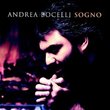
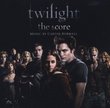
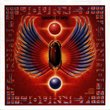
![The King And I: From The Soundtrack Of The Motion Picture (1956 Film) [Soundtrack]](https://nationalbookswap.com/cd//m/51/5051/175051.jpg)
